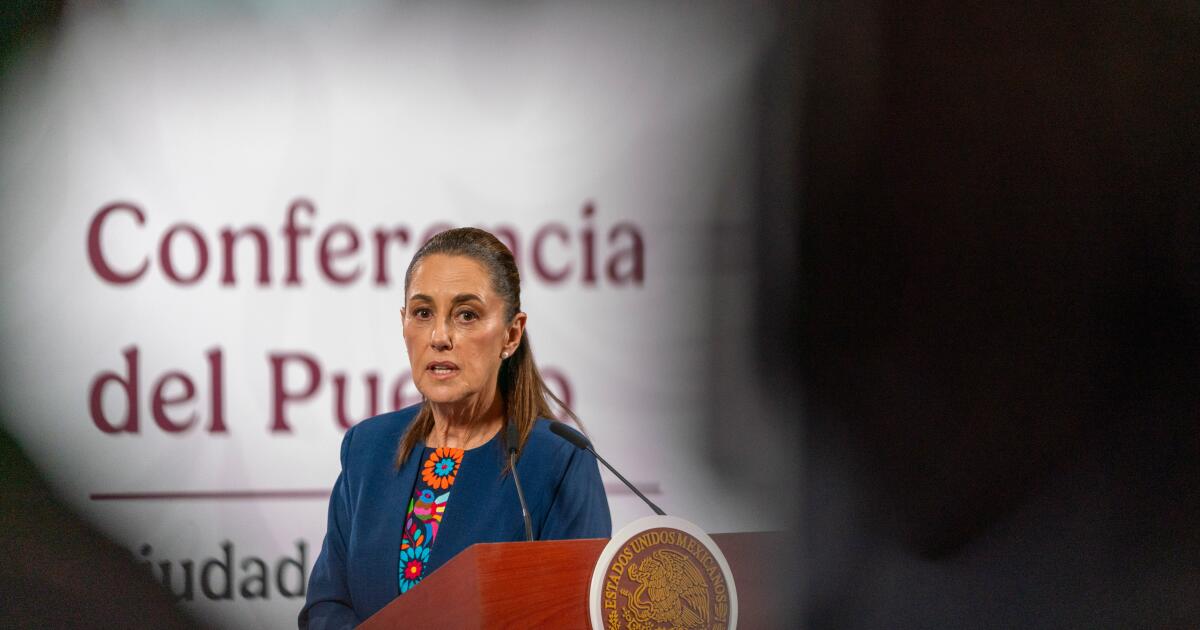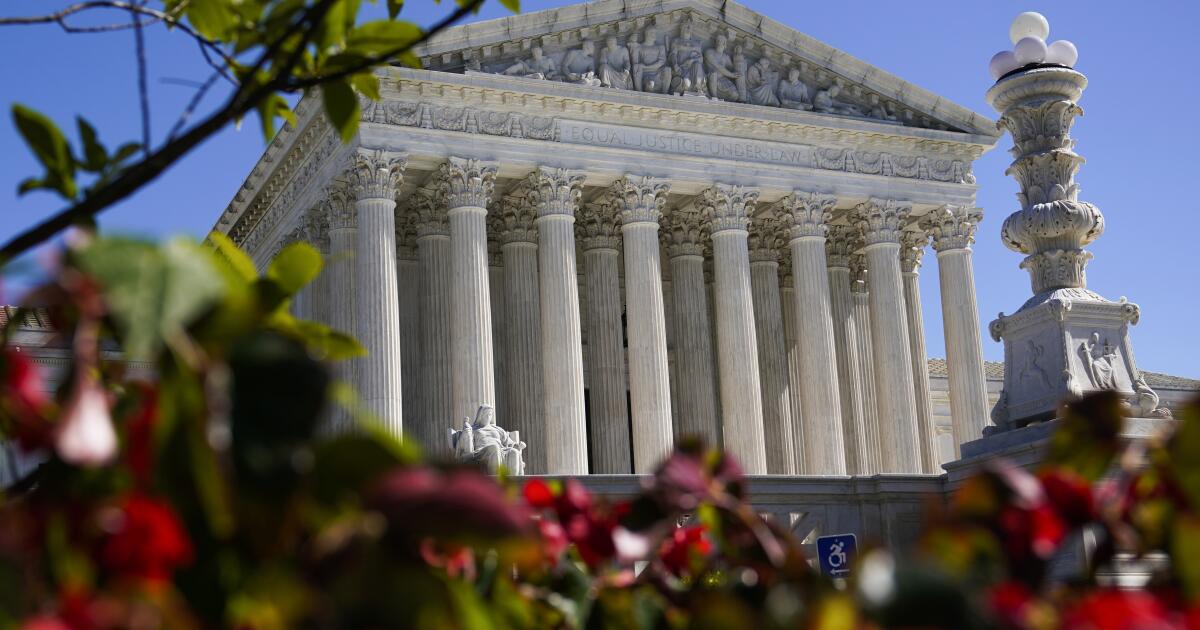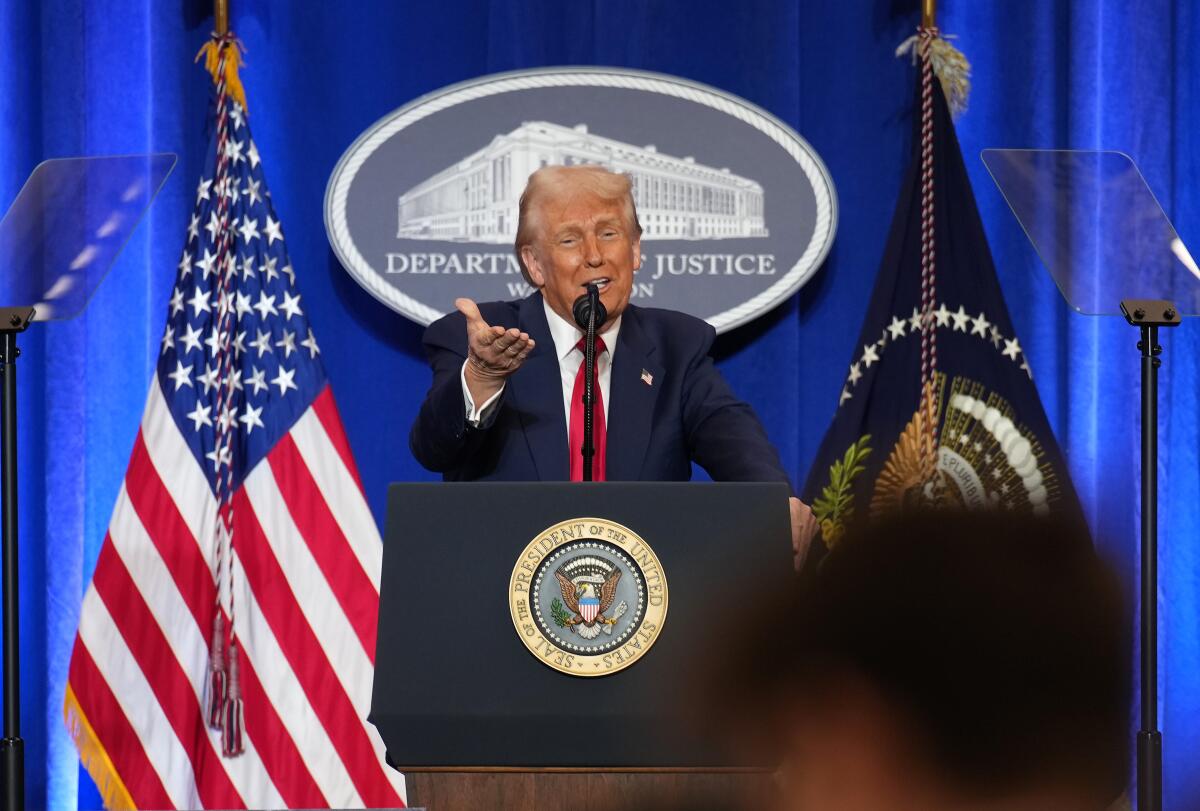
MEXICO CITY — It may be “OK” with President Trump, but Mexico rejects any U.S. strikes against cartels in its territory.
That was the message reiterated Tuesday by Mexican President Claudia Sheinbaum, who has repeatedly said that her nation would not accept U.S. attacks or troops on Mexican soil.
“It’s not going to happen,” Sheinbaum told reporters at her daily news conference. “We cannot permit an intervention.”
Mexican authorities seem to have been convinced that the matter was settled, especially after Secretary of State Marco Rubio declared last week that U.S.-Mexico anti-drug cooperation was at “an all-time high,” adding: “We’re not going to take unilateral action or go in and send American forces into Mexico.”
But the incendiary issue flared again this week as Trump made some provocative, off-the-cuff remarks.
“Would I launch strikes in Mexico to stop drugs?” Trump said Monday, repeating a journalist’s question at the Oval Office. “It’s OK with me.”
Trump didn’t unveil any specific plans for a U.S. attack. But he clearly contradicted his top diplomat’s upbeat assertions that Washington was pleased with Mexico’s anti-drug efforts.
“Let me jut put it this way: I am not happy with Mexico,” Trump said. “OK?”
Trump’s comments flashed instantly on news channels, websites and social media platforms in Mexico, once again raising the specter of a unilateral, potentially destabilizing U.S. assault south of the border.
“Disgusted with Mexico,” read the front-page headline in El Diario de Yucatán newspaper, citing Trump’s displeasure.
On Tuesday, Sheinbaum moved to quash the concern, repeating her oft-stated mantra: “Collaboration and coordination without subordination.”
The Mexican leader said she had made the point repeatedly in telephone calls with Trump, with whom she appears to have a collegial relationship, despite the political gulf between the two: Sheinbaum a lifelong leftist and scientist, and Trump, a conservative real-estate baron-turned-politician.
The Mexican president says that she has repeatedly rejected Trump’s offer to sent U.S. troops south to help fight drug traffickers.
“I have told him on every occasion that we can collaborate, that [the United States] can help us with information that they have, but that we operate in our territory,” Sheinbaum said. “That we don’t accept an intervention from any foreign government.”
Trump has long seemed fixated on the notion of attacking cartels in Mexico. During his first term, Trump suggested to his then-Defense secretary, Mark T. Esper, “We could just shoot some Patriot missiles and take out the labs, quietly,” according to Esper’s memoir, “A Sacred Oath.” Esper wrote that Trump said, “No one would know it was us.”
The contentious issue of potential U.S. strikes reemerged at a sensitive moment here, as opponents accuse Sheinbaum and her Morena party of running a “narco-government.” She has dismissed the charges as a political attack from right-wing foes.
But the recent assassination of a regional mayor who accused Mexico City of being soft on cartels has sparked large-scale anti-government demonstrations. Participants demand a crackdown on organized crime, which was blamed in the slaying of the mayor, Carlos Manzo, of the western city of Uruapan.
Polls have generally shown that Mexicans oppose any unilateral U.S. intervention but are open to Mexican cooperation with the United States in fighting organized crime.
Trump has hailed Sheinbaum as a “brave lady” but also declared that she is “so afraid of the cartels she can’t even think straight.”
Trump’s remarks on Monday indicate that the president is pleased with his administration’s controversial attacks on alleged drug-ferrying boats in the Caribbean and Pacific, strikes that have cost dozens of lives. Critics have denounced the strikes — which are among the most militaristic moves in Washington’s decades-long “War on Drugs” — as extrajudicial executions.
The Trump administration calls the strikes an appropriate response to what U.S. officials label narco-terrorism.
“We’ve shut down the sea routes,” Trump said on Monday. “The land routes are next.”
That would seem to point to Mexico, the major land corridor for illicit drugs destined for the U.S. market. Mexico is both a major producer of synthetic drugs like fentanyl and amphetamines and a transit hub for northbound loads of South American cocaine.
“We know every route,” Trump said of the smuggling corridors, issuing a clear threat to cartel leaders. “We know the address of every drug lord. … We know their front door. We know everything about every one of them. They’re killing our people. It’s like a war.”
On Tuesday, Sheinbaum said she told Trump: “The last time that the United States intervened in Mexico they took half of [our] territory.”
She was referring to the 1846-48 Mexican-American War, now widely seen as a U.S. expansionist gambit in the era of Manifest Destiny.
However, that was not the most recent U.S. military thrust into Mexican territory. The tumultuous period of the Mexican Revolution (1910-20) saw two operations south of the border.
In 1916-17, Gen. John J. Pershing headed the ill-fated “Punitive Expedition,” meant to track down Gen. Francisco “Pancho” Villa, the Mexican revolutionary whose forces had raided the U.S. town of Columbus, N.M. U.S. troops never found Villa, whose legendary status was only enhanced as he eluded capture.
In 1914, U.S. Marines and sailors invaded and occupied the port of Veracruz, ostensibly to block German arms shipments to the government of Mexican President Victoriano Huerta. That occupation lasted six months.
These antagonist episodes in U.S.-Mexico relations may merit little more than a footnote in some basic U.S. history texts. But all Mexican children are schooled in the what is taught as the nefarious U.S. legacy of invasions and land grabs.
Special correspondent Cecilia Sánchez Vidal contributed.



